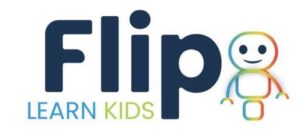Dive Brief:
- The priorities governors outlined in their 2023 state-of-state speeches were nearly identical to those expressed prior to the COVID-19 pandemic, according to a K-12 Dive review of the most popular education-related topics compiled so far by the Education Commission of the States.
-
School finance, teaching quality, and career and technical education were among the most popular topics. A majority also voiced support for early learning and child care. These issues, which were also highlighted by many governors in 2020 and 2019,are usually evergreen, according to ECS.
-
Other hot topics this year include student health, school choice and school safety. Though they are heating up, they still were reflected in recent years’ priorities for governors.
Dive Insight:
After the onset of the pandemic, many educators and organizations hoped leaders’ priorities would shift toward more innovative and equitable approaches to education. Leaders including U.S. Secretary of Education Miguel Cardona in 2021 called on states and lawmakers for a “sustained effort” in these areas and said, “We cannot go back to how it was before.”
While some lawmakers did call for sustained change in their 2023 state-of-state messages — such as a proposed $1.1 billion increase in K-12 funding for public schools and choice initiatives by Indiana Gov. Eric Holcomb and a 37% increase in K-12 funding since 2012 touted by Iowa Gov. Kim Reynolds — the outcomes depend on state lawmakers’ support.
Wesley Tharpe, deputy director of state policy research at the Center on Budget and Policy Priorities, suggested in January that many state policymakers have launched 2023 by proposing more tax cuts. National and state forecasters expect revenue growth to slow down over 2023, following slowed state revenue growth in the latter half of 2022, Tharpe said.
Unless these revenue drops are counteracted by tax hikes, states may have to cut budgets — which could lead to teacher layoffs and class size growth, among other changes to local essential services, said Tharpe.
And despite governors’ stated intentions to support K-12 funding, many state leaders — including Colorado Gov. Jared Polis and Nebraska Gov. Jim Pillen — actually proposed tax cuts. State policy and education finance experts say this could contribute to a rocky road ahead.
Meanwhile, governors are looking to the federal government to provide financial stability, saying a failure to do so would “create significant uncertainty and risk” to government services, according to a joint statement by New Jersey Gov. Phil Murphy and Utah Gov. Spencer Cox.
“And we call on both the Administration and Congress to consider serious long-term reforms that will reduce the national debt and put the country on more sustainable fiscal footing,” Murphy and Cox, who serve as chair and vice chair, respectively, of the National Governors Association, said in a Feb. 7 statement released by the organization. “States and territories succeed when there is certainty and stability in federal resources.”






Leave a Reply